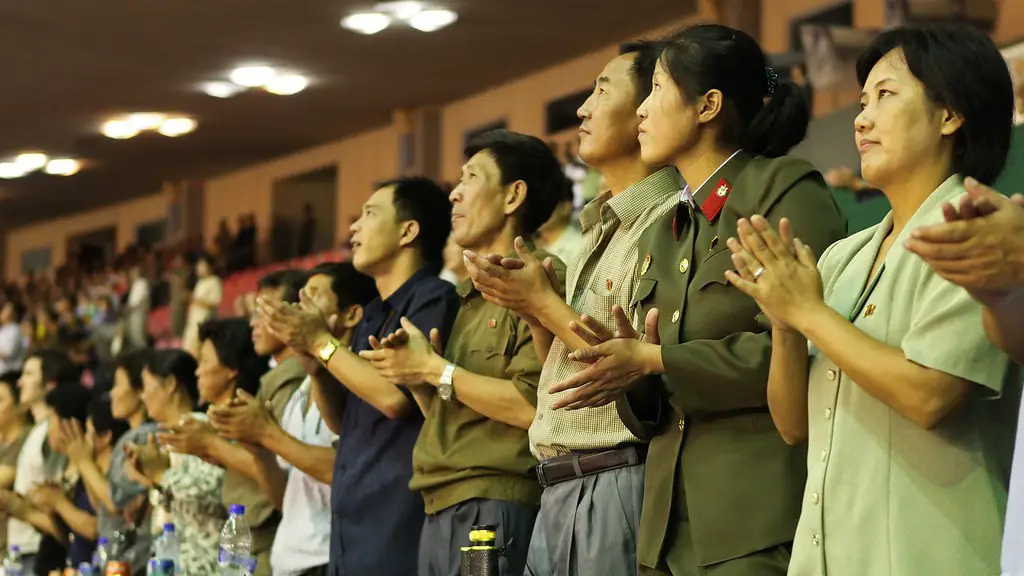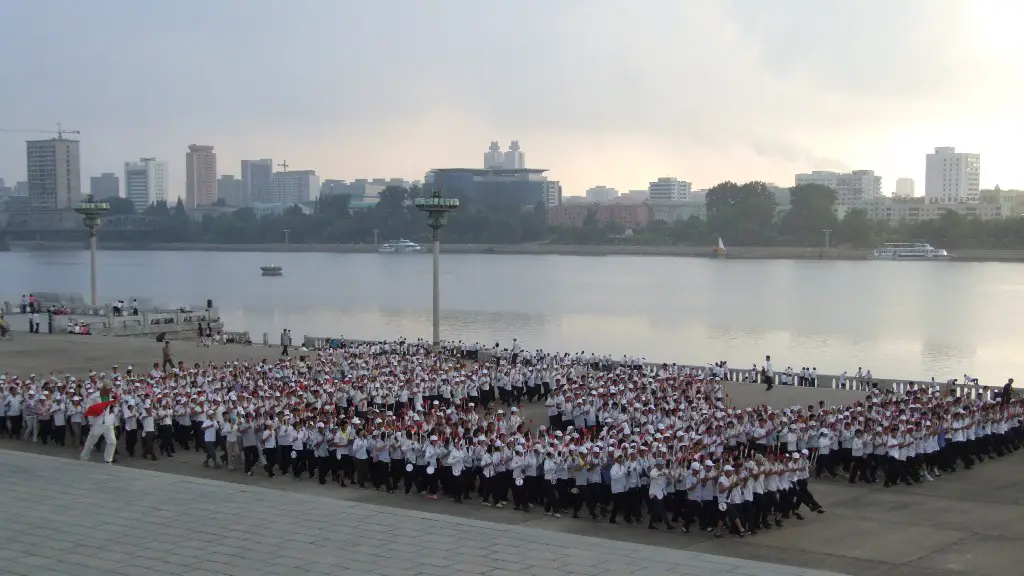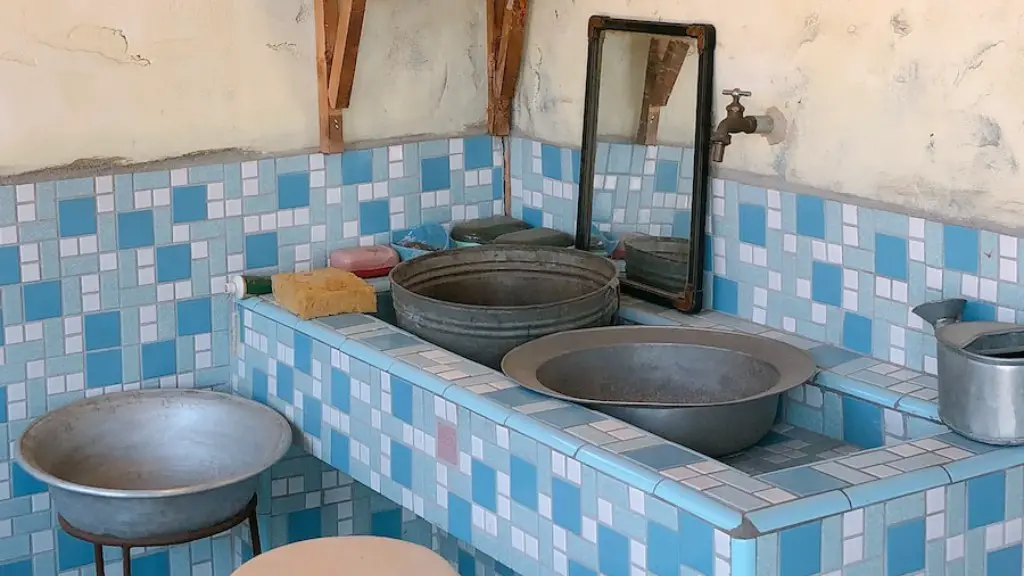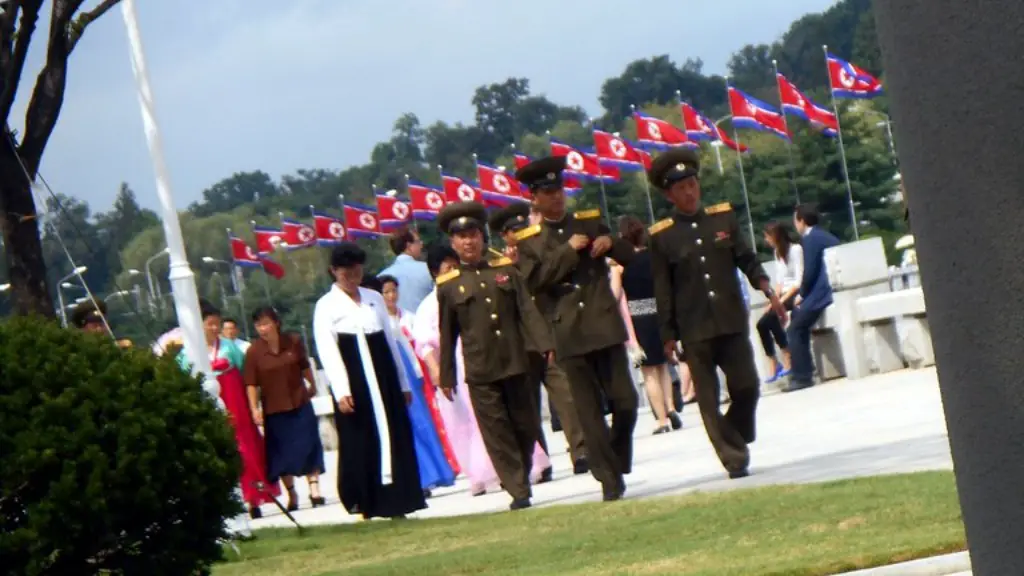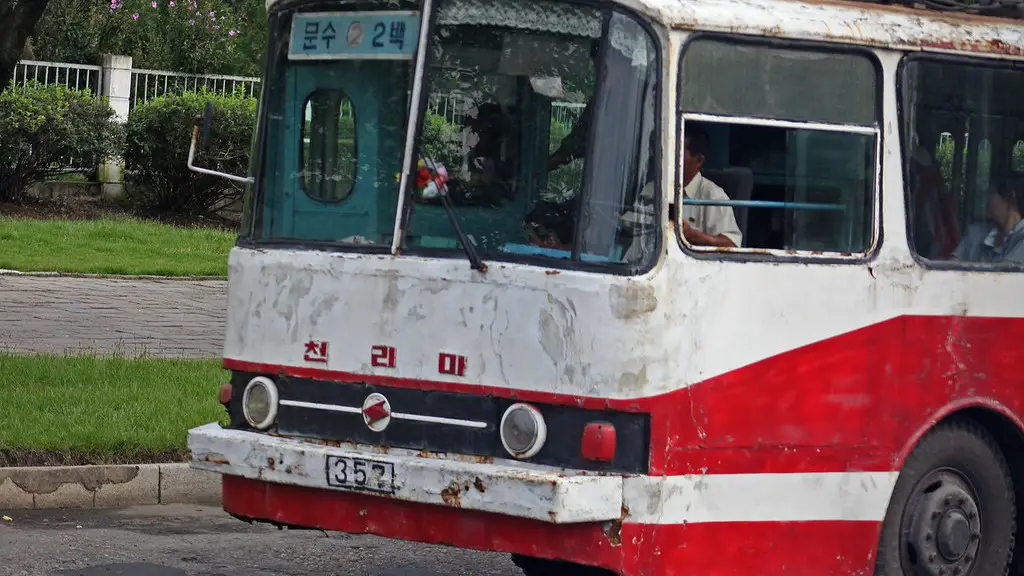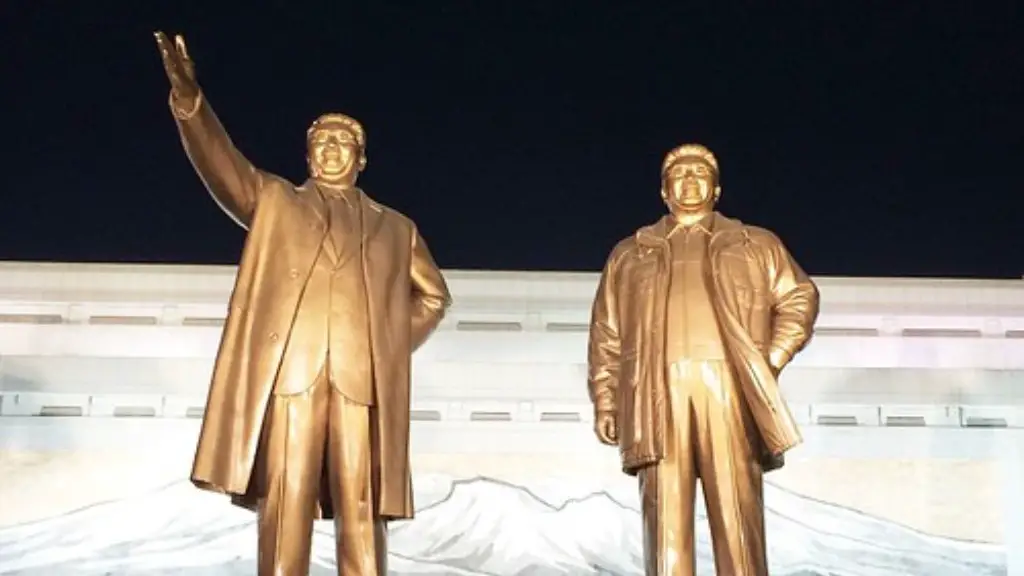North Korea is a mysterious country that has been shrouded in secrecy for decades. It is infamous for its oppressive regime, human rights abuses, and its aggressiveness towards other countries like South Korea and the United States. Despite this, there is much to learn about the country, and many might be surprised to know that there are quite a few things which are famous in North Korea.
One of the most prominent things that is famous in North Korea is Mount Paektu. Located on the border between North Korea and China, it is known as a holy mountain with a mythical origin story and has been featured in the nation’s propaganda for years. Located on the mountain is a crater lake, known as Heaven Lake, or Chonji, which is said to contain spiritual power and bring luck to those who visit it. The mountain is a symbol of North Korean patriotism and a focus of much North Korean tourism.
North Korean propaganda is also famous around the world. It is a complex mixture of history, ideology and religion which is used to create a false image of a powerful and prosperous country. The regime uses posters and stories as a tool to instill its core values and to sometimes create a sense of fear by showing its rivals in a poor light. The propaganda also serves to give citizens of the country a sense of pride and patriotism, even though much of it is not true.
North Korea is also famous for its military parades, which are held to commemorate the nation’s holidays and special occasions. The parades feature a show of military power and displays of the country’s military might. The parades usually involve a long line of soldiers marching and chanting slogans, with tanks and missiles being shown off as well. Although it is sometimes seen as a sign of strength and unity, it is also a reminder of the country’s repressive regime and its lack of democracy.
North Korea is also known for its strict state censorship. This censorship includes the banning of most foreign media and content, as well as restrictions on what citizens can access on the internet. The government controls all forms of media, including television, newspapers, and the internet, and also restricts access to foreign news. This has created an environment in which the population has very little access to the outside world, leaving them heavily reliant on the state-controlled media.
Another thing that is famous in North Korea is its art and culture. Despite the oppressive regime, art and culture flourish, and some very talented North Korean artists have had their works displayed in galleries and museums around the world. North Korean folk art is particularly famous for its vivid colours and intricate designs. Traditional North Korean music, such as the historic taep’yongso, is also popular within the country.
Finally, North Korea is also famous for its leader, Kim Jong-un. He is often pictured as a powerful and imposing figure in state propaganda, and is seen by some to be a figurehead of the regime. While Kim is widely criticized for his human rights abuses and nuclear ambitions, he is still a key figure in the country. He is seen as the absolute leader of the nation, and any changes to the nation are seen as being directly influenced by him.
Economic System
North Korea’s economy is a planned economy, in which the state controls all aspects of production, distribution and investment. The government also sets prices, wages and production quotas. This system means that the state is the only source of goods and services, resulting in shortages for the general population due to its inefficiencies. North Korea has been heavily sanctioned by the international community due to its nuclear program, which has resulted in the country facing extreme poverty. Despite this, the government has managed to maintain its grip on power over the years.
The economic system in North Korea also includes state-run enterprises, which are responsible for most of the nation’s economic output. Theses state-run enterprises are responsible for crucial areas such as energy, industry, transportation and finance. The government rigidly controls the functioning of these enterprises, and the outputs they produce. The majority of resources are channeled towards military spending, and the public sector is heavily subsidized.
The agricultural sector is still largely composed of small-scale farms, although it is slowly becoming more commercialized. Even so, the agricultural sector remains inefficient and underdeveloped. North Korea has had to rely on food imports from other countries, which has been made even harder by the sanctions placed on it by the international community.
The currency of North Korea is the North Korean won, and it is a strictly regulated currency. It is not seen as a viable currency by much of the international community, due to very real concerns about counterfeiting and its limited acceptance outside North Korea. The North Korean government has attempted to open up its economy and markets to reduce international economic isolation, although much of the population remains heavily dependent on the government.
Transportation and Infrastructure
North Korea has an extensive transportation network, making it easy to travel within the country. The most popular means of transport is the train, which is a cheap and effective way to move around. The roads are also well-developed, with a number of roads connecting different cities and towns. Despite this, most roads are in poor condition and only used by smaller vehicles.
The energy sector in North Korea is heavily reliant on coal-fired power plants, which create significant environmental problems. North Korea is also lacking in infrastructure, which limits industrialisation. The country is unable to access modern technologies due to the sanctions, resulting in the population using outdated technology. In the telecoms sector, North Korea is one of the least connected countries in the world.
North Korea also has limited internet access, with only a few privileged citizens able to access the global network. The government strictly controls access to the internet, and heavily censors information. This has led to the population being heavily reliant on state-controlled media for information.
Education Systems
North Korea has a heavily politicized education system, which is closely tied to the ideals of the regime. Education is heavily focused on principles such as self-reliance and loyalty to the state, and is used to propagate the regime’s political ideology. Education is also structured for students to conform to strict ideological standards, and to conform their values to those of the state.
However, North Korea is also known for its universities, which are known for having some of the best students in the world. Higher education in North Korea is heavily focused on science and engineering, and the universities have some of the highest graduation rates in the world. Despite the oppressive nature of the regime, education is still highly valued in North Korea.
Education is free to all citizens in North Korea up to the secondary level. All students are required to attend schools and are given free textbooks and uniforms. Primary school consists of five years of study, while secondary school is three years. Higher education is also free, although only the most qualified students can attend universities. There are also a number of technical schools and academies which focus on specific fields.
The education system in North Korea is also heavily focused on cultivating patriotism and a sense of nationalism. All students are expected to take classes such as ideology and political education, which focus on the teachings of the regime. North Korea also has extremely strict tests for students, which assess their loyalty to the state and its ideals.
Sports and Recreation
North Koreans are known for their love of sports and physical recreation. The country holds a variety of national and international sports competitions, and typically does well in most international competitions. North Korean athletes have also earned international acclaim, particularly in sports such as weightlifting and judo. Some of the most popular sports include football, basketball, volleyball, table-tennis and badminton.
North Koreans also take great interest in leisure activities such as dancing, singing and traditional music. There are a variety of national festivals and celebrations throughout the year, and many of them feature traditional music and dance. North Koreans also take great interest in their national parks and historical sites, which often host traditional events and ceremonies.
North Korea also has a thriving film industry, which is used to propagate the regime’s ideology. The state tightly controls the content of movies and television programmes, and is quick to punish those who attempt to challenge its rules. However, North Koreans still take great interest in film, and there are a number of cinemas in the country.
North Korea also has a variety of recreational activities such as gaming, board games and video games. North Koreans are avid gamers, and there are a number of gaming cafés in the country. Video games are also extremely popular, and there are often tournaments held for the best gamers in the country.
Conclusion
North Korea is an enigmatic country, and there are a lot of things which are famous in the country. From its mysterious culture and art, to its strict censorship and oppressive regime, North Korea is a place shrouded in mystery and intrigue. Despite its oppressive rule, North Koreans still take great pride in their country, culture and history, and many of the nation’s customs and traditions are still celebrated and admired around the world.
